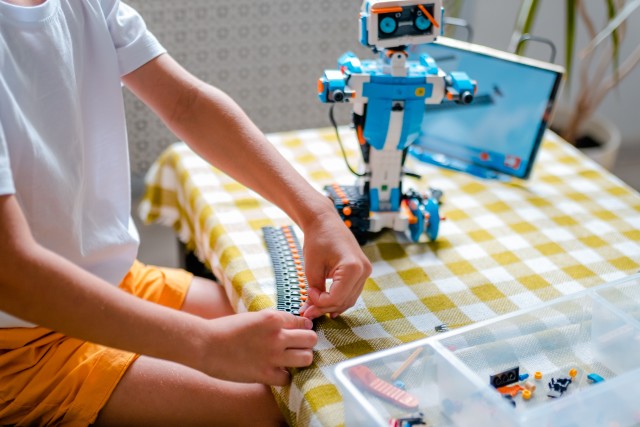The Rise of Automation
You may be wondering how the rise of automation affects the job market. Well, let me tell you, automation has had a significant impact on various industries.
With the advancements in technology, many tasks that were once performed by humans are now being done by machines. This has led to increased efficiency and productivity in industries such as manufacturing and logistics.
However, automation has also resulted in job displacement for many workers. Jobs that were once done by humans are now being taken over by robots and AI systems. Even in customer service, AI is being used to handle customer inquiries and provide support.
While this may streamline processes and reduce costs for companies, it also means that fewer human workers are needed. As a result, there is a growing concern about the future of employment in an increasingly automated world.
Changing Job Roles and Responsibilities
Your job roles and responsibilities are likely to change as a result of AI advancements. With the rise of automation and the integration of artificial intelligence into various industries, the workforce is undergoing a significant transformation.
Skill retraining has become crucial to adapt to the changing job landscape. As AI takes over repetitive and mundane tasks, human workers are now expected to focus on more complex and creative aspects of their jobs. This shift requires individuals to develop new skills and acquire a deeper understanding of AI technologies to effectively collaborate with intelligent systems.
Companies are also investing in upskilling programs to ensure their employees are equipped with the necessary knowledge and capabilities. Embracing the change and actively participating in skill retraining is essential for success in this era of workforce transformation.
Job Displacement and Unemployment
The rise of AI and automation is leading to job displacement and higher unemployment rates. As AI technology continues to advance, many jobs are becoming automated, leaving workers without employment opportunities. This has significant economic implications for individuals and society as a whole.
However, job retraining programs can help mitigate the negative effects of job displacement. By providing workers with new skills and knowledge, they can adapt to the changing job market and find employment in emerging industries. The success of job retraining programs depends on collaboration between government, educational institutions, and businesses.
Investing in these programs not only helps individuals secure new job opportunities but also strengthens the overall economy by ensuring a skilled workforce. It is essential to prioritize job retraining to navigate the challenges presented by AI and automation.
New Job Opportunities and Skills
Finding new job opportunities in emerging industries requires developing new skills and adapting to the changing demands of the workforce. With the rise of artificial intelligence and automation, traditional job roles are being replaced, but at the same time, new job opportunities are emerging.
To seize these opportunities, you need to invest in skill development that aligns with the demands of these emerging industries. This means staying updated with the latest technological advancements and acquiring knowledge in areas such as data analytics, machine learning, and robotics.
The Future of Work and Adaptation
Embracing lifelong learning and being open to acquiring new skills will help you stay relevant and competitive in the job market of the future. Industries continue to evolve, and technology shapes the way we work. The future workforce will require individuals to adapt to the ongoing digital transformation taking place across various industries.
As more and more tasks become automated and artificial intelligence becomes increasingly integrated into our work environments, it is crucial to develop a mindset that embraces change and continuous learning. By staying curious and proactive in seeking out new knowledge and skills, you can position yourself to thrive in the evolving job market.
This ability to adapt and learn new technologies will not only ensure your employability but also open up new opportunities for growth and advancement.
Conclusion
In conclusion, artificial intelligence is having a significant impact on the job market. As automation continues to rise, job roles and responsibilities are changing, leading to job displacement and unemployment for some.
However, it also presents new job opportunities that require different skills. The future of work will require adaptability and the ability to learn new technologies.
So, be prepared to embrace the changes brought about by artificial intelligence and equip yourself with the necessary skills to thrive in this evolving job market.
